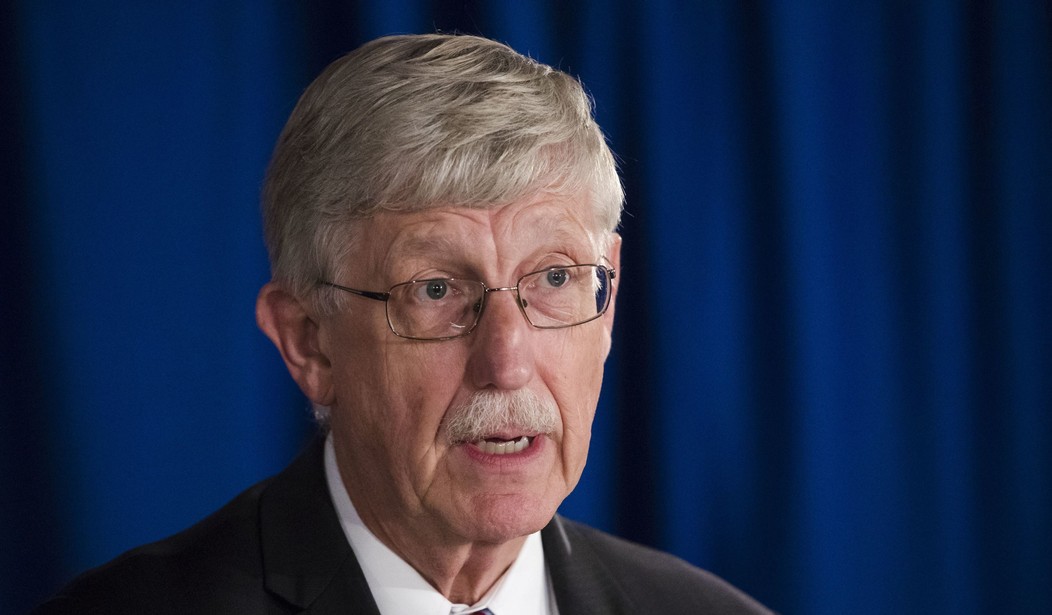While Dr. Anthony Fauci continues to fear monger about COVID, his boss, Dr. Francis Collins, the head of National Institutes of Health (NIH) said on "Fox News Sunday" that they "expect most likely current vaccines will be sufficient to provide protection," noting that this is "especially" when it comes to the boosters.
During the segment, Dr. Collins took the opportunity to tell fill-in host Trace Atkins that omicron was an excuse to get vaccinated for those who have not done so yet, and to get the booster for those who have already been vaccinated.
"It is clear in the previous examples of variants, the vaccine have worked to provide protection and boosters provide strong protection against delta. We expect most likely current vaccines will be sufficient to provide protection and especially the boosters will give that additional layer of protection, there is something about the booster that causes your immune system to expand capacity against different spike proteins, even ones it hasn't seen before," Collins said.
Dr. Collins did also point out that it is too soon to tell for sure, however. It will take about "two or three weeks," he indicated, to know if antibodies from natural immunity or vaccines work for this variant. Omicron is known to be contagious and have many mutations.
That being said, Dr. Angelique Coetzee, the South African doctor who informed the country's vaccine advisory committee about the variant, told The Telegraph that the symptoms appear to be "so different" and "so mild" for this variant.
Recommended
When it comes to a need for a new vaccine against omicron, Collins hopes "we don't have to do that" but indicates Pfizer and Moderna are already "in the process of designing that."
Dr. Collins also appeared on CNN's "State of the Union," where he emphasized the same points to host Dana Bash. He explained that the reason there is so much concern over the variant is because of its mutations and variants. But Collins did say "I think there's good reasons to think it will probably be okay."
For the booster to not protect against omicron appears to be "the worst case." The booster, Dr. Collins explained "basically enlarges the capacity of your immune system to recognize all kinds of different spike proteins it's never seen."
Collins and Coetzee have both pointed out that omicron has affected mostly young people with mild cases, with Collins saying that "maybe people with this are milder than the usual case" but adding "I would say we just don't know." Coetzee had indicated concern for the elderly and those with co-morbidities, but it's worth stressing that those populations are also vulnerable when it comes to the original strain.
"So, stay tuned. We're going to get better information about this. There's no reason to panic. But it is a great reason to go get boosted," Collins shared.
“There's no reason to panic, but it’s a great reason to get boosted,” NIH Director Dr. Francis Collins says about the Omicron variant.
— State of the Union (@CNNSotu) November 28, 2021
While scientists aren’t sure if it causes severe illness, “we do think it's more contagious when you look at how rapidly it spread.” #CNNSOTU pic.twitter.com/S22bIdcROy
The head of NIH says he's "on the fence" as to whether the omicron variant is in the United States, points out "we have no evidence that it is," though he indicated the CDC will be able to find out.
Meanwhile, Dr. Fauci made headlines on Saturday for claiming that it could be in the United States, and that he "would not be surprised if it was."
And, as Katie highlighted, Fauci appeared on ABC's "This Week" on Sunday to warn viewers that they need to "prepare for the worst."
While Dr. Collins is retiring at the end of this year, he is still holding the position for a few more weeks.

























Join the conversation as a VIP Member